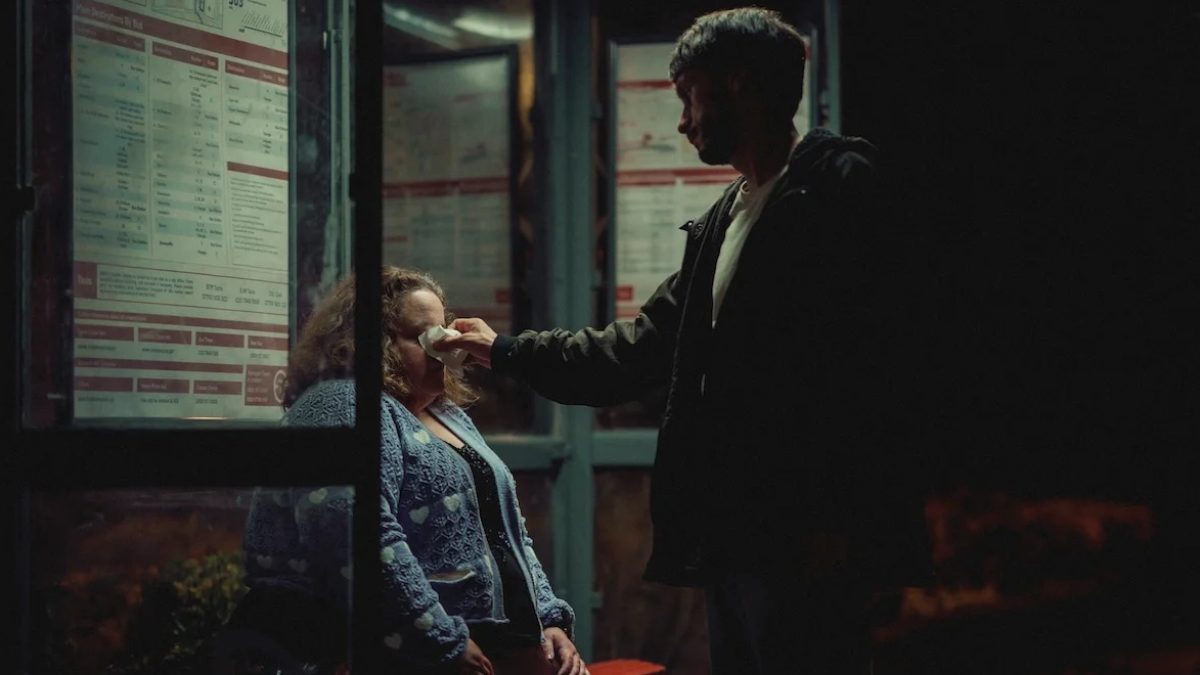Baby Reindeer ⏤ you know it, you probably love it (Stephen King did), it’s probably made your skin crawl, it’s probably elicited a few laughs out of you that you weren’t expecting, it probably made you cry a whole awful lot, and you probably can’t get it out of your head.
In other words, to say that Richard Gadd hasn’t made something profoundly special (and, indeed, important) here would be insincerity of the highest order. But that gong has been sounded aplenty. It’s instead high time we took a closer look at the multi-pronged elephant in the room that has taken root ever since Baby Reindeer shot to the top of the Netflix charts. Indeed, it’s time we turn our attention to those who have made it their mission to identify the real-life Martha and Darrien, often to the detriment of innocent people who now have to contend with death threats and harassment.
How at fault is Baby Reindeer for the false accusations it’s inspired?
Let’s get one thing straight: making a piece of autofiction and including characters based on both your stalker and your rapist and expecting the internet not to do their best Sherlock Holmes impression afterward is severely naive. That’s not to say that Gadd and company were working under any such illusion, but the fact that such a reaction didn’t seem to be anticipated is, admittedly, something of an oversight on the part of team Baby Reindeer (even if Gadd has since come forward to tell everyone to stop).
More importantly, though, I want to challenge the idea that the existence of Baby Reindeer is to blame for this influx of false accusations. It’s true that Gadd could have addressed this phenomenon in a more timely manner, and it’s also true that “Baby Reindeer didn’t directly endorse this, so it isn’t Baby Reindeer‘s fault,” is hardly a helpful statement. It must be said, however, that the moment we turn the accountability mirror towards Baby Reindeer itself, we’ve relieved the internet sleuths of precisely that same accountability, which is both a dangerous and insulting precedent for everyone involved.
The Baby Reindeer situation, then, is a fantastic opportunity to open up conversations and dialogues surrounding healthy media consumption and how social media has mutated our obsession with drama and gossip by effectively giving us the tools to get directly involved with it ourselves (or, at the very least, get some impression of involvement).
With Baby Reindeer specifically, this is a very grounded, very intense show that had many viewers reacting strongly to it; it’s subsequently no surprise that — presumably in lieu of any palpable sense of self or fulfillment — those strong feelings about Baby Reindeer became the primary thing in their lives that those viewers could attach to. Toss in the fact that it’s based on a true story (i.e. real people, i.e. people who have harmed or otherwise abused Gadd, who many such viewers now feel a connection with) and these viewers now have the opportunity to give those feelings a more palpable purpose by putting that energy towards tracking down those who have hurt Gadd. Moreover, the fact that Martha and Darrien are varying sorts of abusers allow these viewers to easily paint them — and therefore the people these viewers accuse — as bad people, which in turn distracts from what can only be their own failings in life (emotional and otherwise). Make no mistake; the Baby Reindeer situation is, perhaps appropriately enough, a mental health issue in every way that matters.
It could, of course, be said that the real-life Darrien at least deserves to be put on full public blast (per Deadline, Gadd has reportedly been quite open about the real-life Darrien’s identity to those in the British entertainment circuit), and there’s certainly truth to that statement. But, as we’ve witnessed, taking such matters into one’s own hands has resulted in a myriad of death threats (among other such disturbances) against innocent people, and no one should be okay with doing such a thing.
Going off of that, one might say that, given Gadd’s pleas to the public to stop their investigations, he himself has a responsibility to let the public know who Darrien really is. It’s an understandable sentiment; no one would want someone who abuses his power and influence in such ways to continue to be able to do so, and he should absolutely face justice for his crimes. But, to put that specific responsibility on Gadd’s shoulders isn’t the right call either. His assault was his experience, and no one has any business telling him how he should be navigating it (which, for all we know, has included reports to the police). All we know is that it happened to him, and one of the ways he chose to navigate the aftermath was to make Baby Reindeer, a show that’s quite literally about navigating some of life’s most complicated interpersonal dangers, how we end up hurting people after we ourselves have been hurt, and facing it all with a rugged blend of compassion, humility, honesty, and self-preservation.
Baby Reindeer is a challenging show in all the right ways, and to blame it for the less-savory actions that people have taken in light of its subject matter downplays the importance of said subject matter while freeing the real perpetrators of personal responsibility. If one Mr. Donny Dunn has taught us anything, it’s that personal responsibility is one of the first steps one must take on the road to healing.
